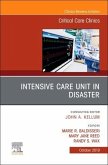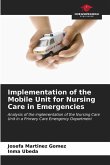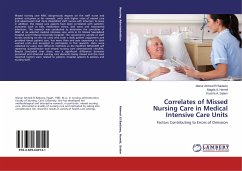Intensive Care Units (ICU s) are the epicentre of cutting edge medical technology, the purpose of which has always been to provide aggressive care to allow the patient who can to heal and regain strength. At the coalface of intensive care service delivery, clinicians are reflecting anecdotally of an increasing volume of patients who will not leave the unit alive and for whom ICU admission did not change their prognostic outcome. For some ICU patients, intensive care becomes intensive palliative care. The increase in patients receiving end-of-life care has a secondary effect of leaving clinicians in a quandary of what to do with patients in ICU who are clearly going to die. Research was undertaken in 2007 to investigate how clinician s dealt with the difficulty of providing end of life care in the ICU, the intent of which should be to provide active care designed to save life rather than palliate. This book articulates that research and findings.








